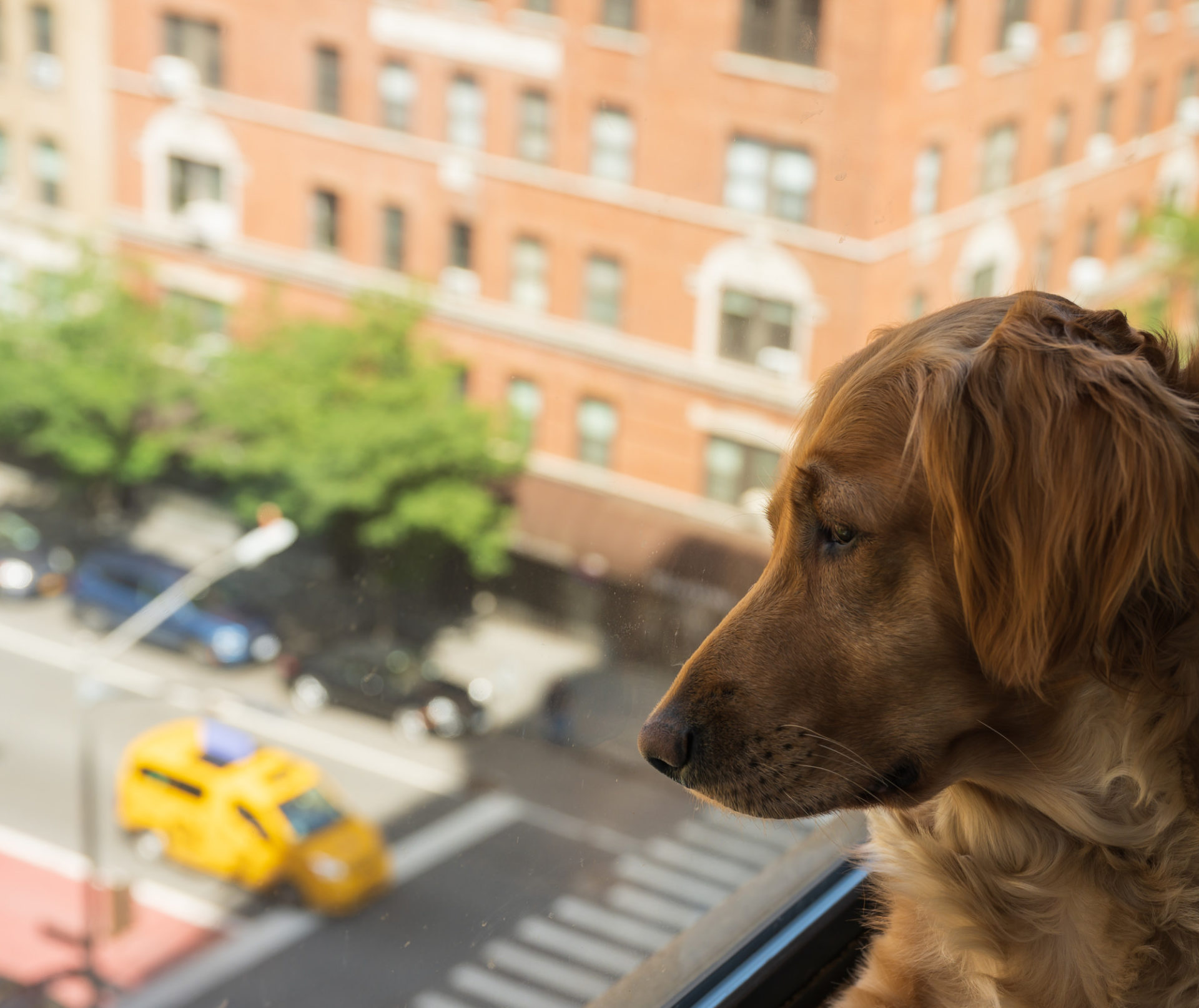Table of Contents Show
The local real estate market doesn’t make it easy for apartment dwellers. Pet owners are less likely to suffer depression, high cholesterol, and high blood pressure than their pet-less peers, but pet ownership seems like a luxury for many New York City renters. To help you enjoy the perks of pet ownership in a New York City apartment, read on to find the right home for you and your loved one.
How to Find Pet-Friendly NYC ApartmentsHow to Find Pet-Friendly NYC Apartments
Finding an apartment in New York City is enough hassle when it’s just for humans, but when you throw in a four-legged friend, it’s even more challenging. Also, when renters find pet-friendly apartments, they encounter obstacles such as breed and weight restrictions. However, there are ways to make your apartment search less stressful and more productive.
Pet-friendly buildings and pets-allowed apartments will allow tenants and owners to keep pets. Pet-friendly dwellings are the best options, as they embrace pets and make life comfortable for them with extra features like on-site doggy daycares and waste stations.
Pets-allowed apartments tolerate pets, although management will typically only approve pets that adhere to breed and weight restrictions. These restrictions may be relaxed if you prove that your pet would suit the apartment. Provide references or obedience training certificates. You could also be, asked to pay an additional month of the security deposit for keeping your pet on the premises; however, please know this is no longer allowed and prohibited from a landlord due to new laws restricting a landlord to only one-month security even with a dog.
Have References AvailableHave References Available
Like when you’re applying for a job, your pet may have to have an interview to move into an apartment, and you’ll need stellar references to get them accepted. Consider statements from past landlords or neighbors, your veterinarian, and your groomer when recommending your pet. Also, include any proof of obedience classes your dog was.
Finally, provide documentation on the health of your pet. Many landlords worry about fleas and property damage. Provide your veterinarian documents showing your pet is taking flea prevention medicine. Be sure to provide reports that prove they are spayed or neutered; therefore, he is calmer and less likely to destroy property.
Use All Your ResourcesUse All Your Resources
The best people to ask about pet-friendly housing options are other pet owners. Visit the dog park and ask if they can offer tips on which buildings to look at and the best property managers to speak to. Additionally, it’s possible that the Humane Society can provide information about apartments that accept pets. There are also websites explicitly devoted to maintaining lists of pet-friendly apartment buildings around the city.
Get Creative with PicturesGet Creative with Pictures
When Angela Allard and her husband looked for a new apartment with their 13-month-old daughter and dog, they knew they would face problems. The rescue agency got the dog and called him an American Staffordshire terrier; most people considered him a pit bull. After being turned down multiple times because of their dog’s breed, the Allardes lost hope. Then, Angela had the bright idea to take pictures of their dog playing with their young daughter for their interviews.
Know the LawKnow the Law
If you’ve got your heart set on an apartment with a no-pet clause, it’s essential to know the Law, which might override this regulation. According to the Law; tenants or owners cannot be, evicted if they have “openly and notoriously”; kept a pet for three or more months; the landlord and his agent knew or should have known about the pet; the landlord had not started a court case to enforce the no-pet clause. The Law applies to tenants living in buildings with at least three apartments, cooperative apartments in all five boroughs, and condo owners in Brooklyn, Queens, and Staten Island.
You have some control over the first two requirements. It would help if you didn’t hide your pet during repairs or maintenance or pretend a stray you’re trying to rehome. If you own a dog, you should walk him during high-traffic times to make your neighbors aware. However, the third requirement is where things get risky. It’s difficult to judge whether a landlord will start proceedings to have you evicted; the plan could backfire. You can have a better chance of your landlord turning a blind eye if you choose an appropriately behaved pet.
Be a Good NeighborBe a Good Neighbor
Apartment dwellers need to be considerate to those around them. That means considering not just your impact on your neighbors but your pet’s impact as well.
If your dog has a problem with barking, try strategies like getting a barking collar. If that does not work, sign them up for obedience classes. Your dog might also bark out of boredom; make sure he gets plenty of exercise and has toys to play with. Ask your neighbors whether your pooch is annoying, as lonely dogs often bark when their owners are out.
So don’t despair; with careful research and consideration, you needn’t give up your pet to live happily in New York City.







